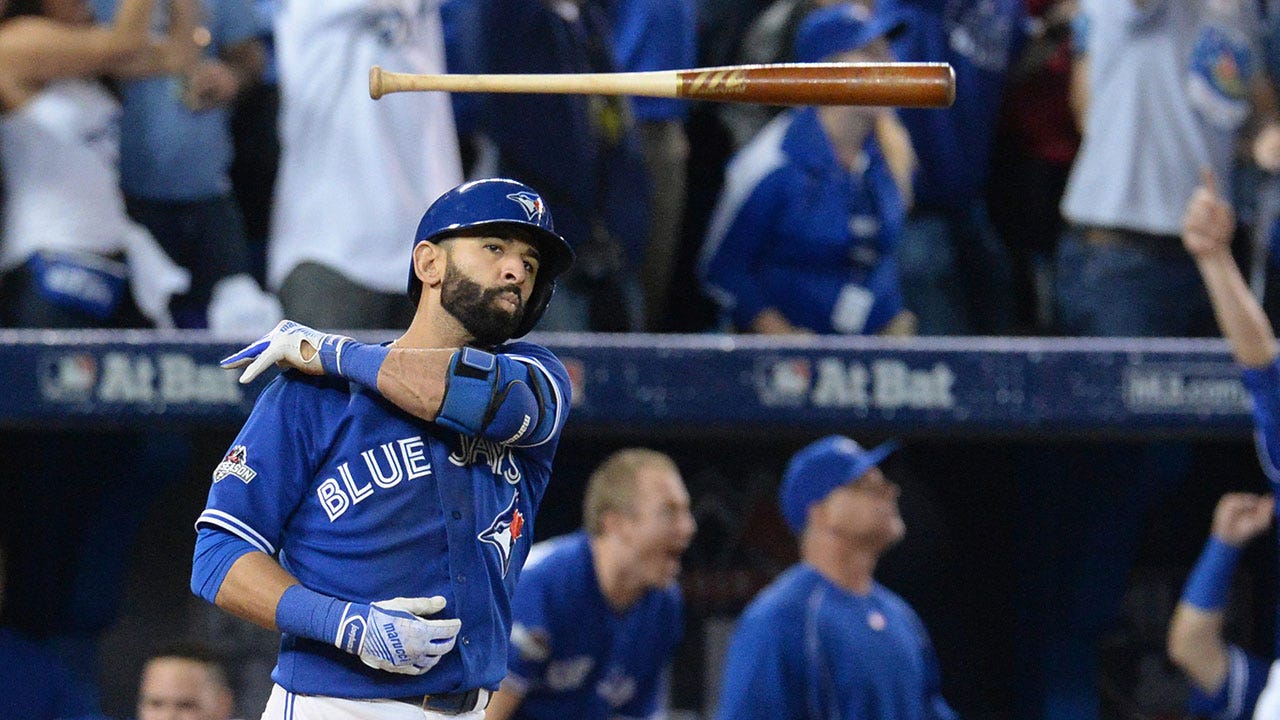Esch: Stop criticizing the success of hitters. Start criticizing the victim mentality of pitchers.

On Monday during an NCAA College World Series matchup between East Carolina and Coastal Carolina, ECU’s Bryson Worrell launched a three-run homer in the 7th inning to effectively clinch a trip to the super regionals for the Pirates as part of a 13-4 rout over the Chanticleers.
Then, as Worrell admired one of the highlights of his baseball career unfolding right before his eyes, the moment was squandered by a hand to the back from home plate umpire Perry Costello — who took it upon himself to ensure Worrell wasn’t given the opportunity to celebrate such a pivotal moment in a game of elevated importance.
Costello’s action has since been a point of discussion on social media, with the sport’s old guard coming to his defense, claiming that any form of ‘showboating’ is disrespectful to not only the opposition but to the game itself.
And to that, I laugh hysterically.
Maybe my laughter proves a striking difference in the generations of both the common athlete and fan. Most have heard the arguments against flashiness laid out by the more experienced demographic of sports fans, which typically reside along the lines of “it’s about the team” — validating the belief that if an athlete ‘shows out,’ he/she is placing their personal value ahead of their team’s.
While this perspective is one I respect (and even agree with to a certain extent), I strongly believe that the same population that rips its youth counterparts for possessing a victim mentality is ironically embracing it through the endorsement of retaliatory acts against those who celebrate their successes.
And baseball, more than any other sport, typically finds itself in the eye of the storm when it comes to discourse pertaining to individual celebrations, and for an obvious reason: it’s a game of a single matchup. Pitcher vs. batter. This means the actions of those on the field are magnified and are much more visible than those of a football, soccer, or even basketball player.
That’s why it’s time for the baseball community — one that has for decades now struggled to develop a connection with young fans — to take advantage of an intimate and personable factor that no other team sport can claim. It’s time to redirect the hate towards those who celebrate success and focus it on those who embody the old guard’s victim mentality.
This means it’s time to stop calling for pitchers to throw a fastball at a hitter that decided to toss a bat into the air after hitting a crucial home run his last time up. That’s a cop-out — an excuse to not perform better but instead complain that the batter is being ‘disrespectful to the game.’ It’s a sign that said hitter has rattled the pitcher’s emotions. It’s soft.
And even for a casual Texas Rangers fan like myself, I found then-Toronto Blue Jays’ Jose Bautista’s iconic bat flip in Game 5 of the 2015 ALDS mesmerizing. I replayed the YouTube video of the moment over and over for the next several days, and it (quite literally) inspired me to watch the rest of that year’s MLB playoffs.
Funny enough, that was the last time I’ve watched said playoffs from start to finish. I suppose the ‘disrespect’ Bautista showed for the game of baseball by making an entire stadium erupt into deafening cheers just didn’t deter me enough — even as he was eliminating my favorite team from the postseason.
Then, when Texas decided to plunk the first Toronto batter that stepped into the box the following season, I cringed. I remember thinking about how pathetic it was that the Rangers had gone out of their way to prove some archaic point about being disrespectful. Because at the end of the day, if you’re a pitcher that doesn’t like watching a hitter pimp a home run, then pitch better.
The bottom line — from a business standpoint — is that baseball at all levels, from MLB down to high school, has been desperately searching for a way to grow the game and increase intrigue amongst a generation of sports fans that appreciates flashiness more than ever.
Therefore, I propose that instead of trying to change the consumers, accommodate them: let players be human. That way, it’s more fun for everyone.
Brett is a Communication Arts major at Bethel College (KS) and Editor-in-Chief of the Bethel Collegian. You can reach him via email or on Twitter.




